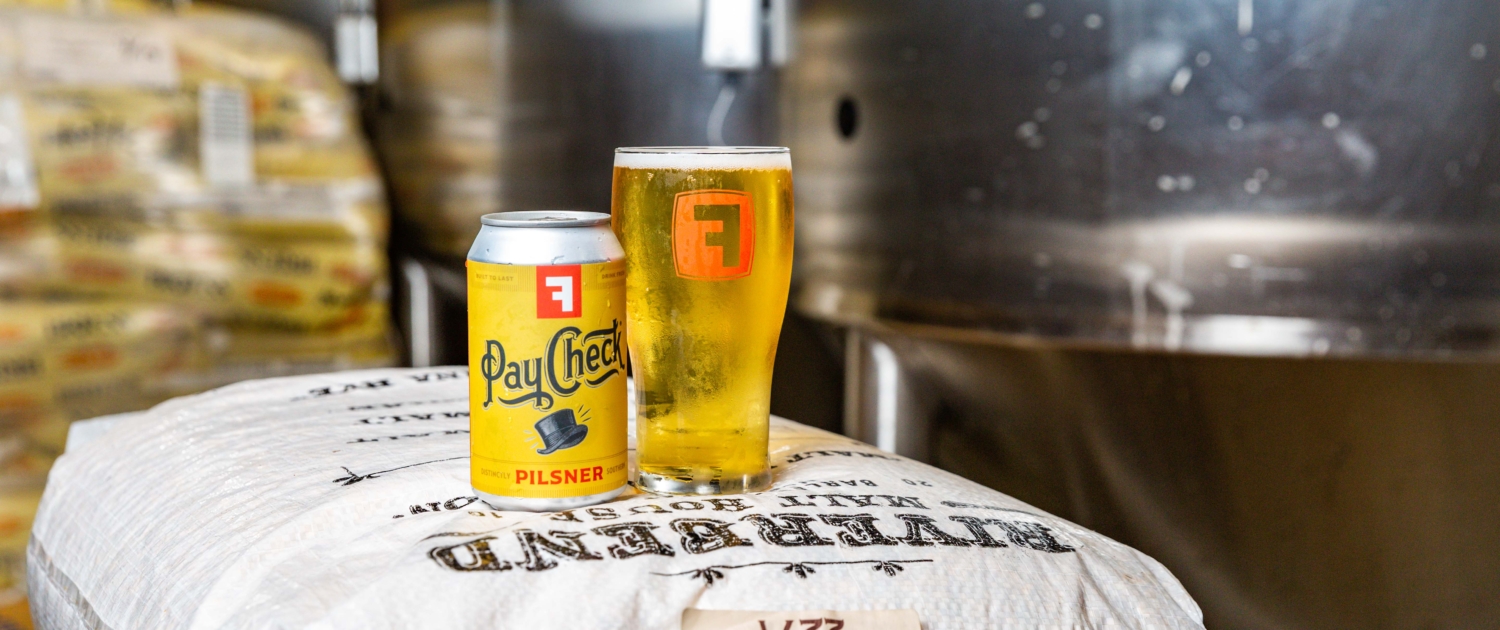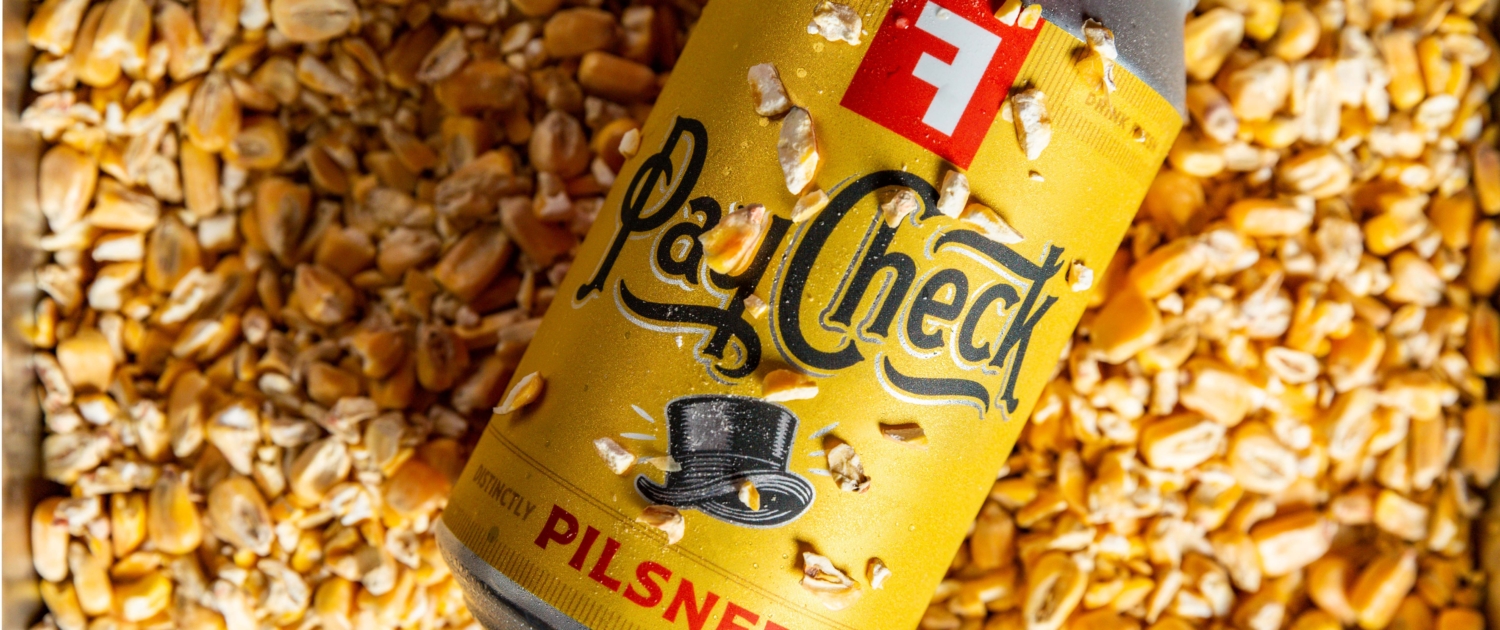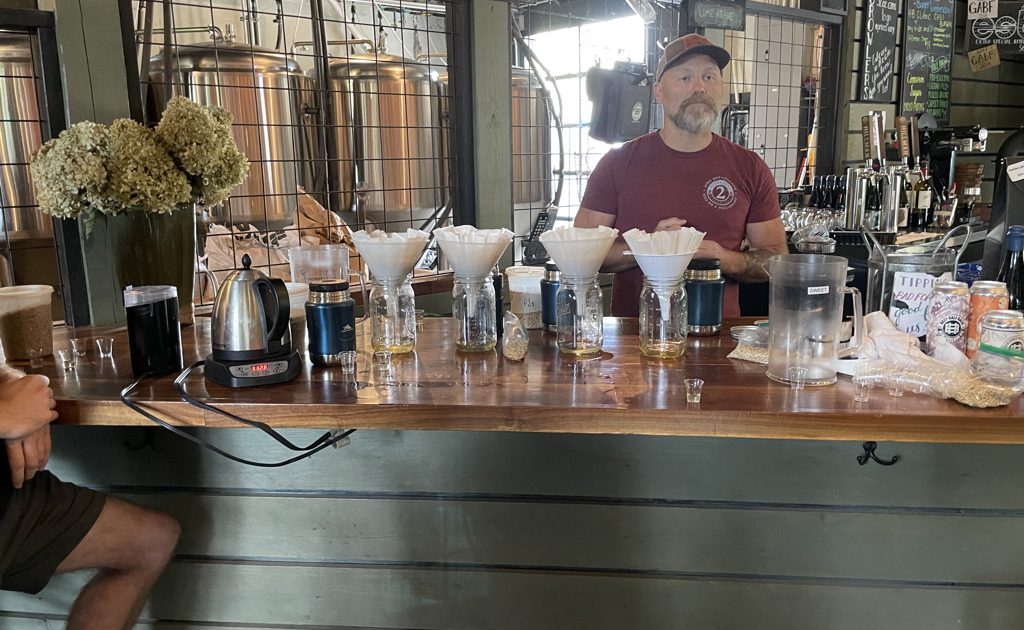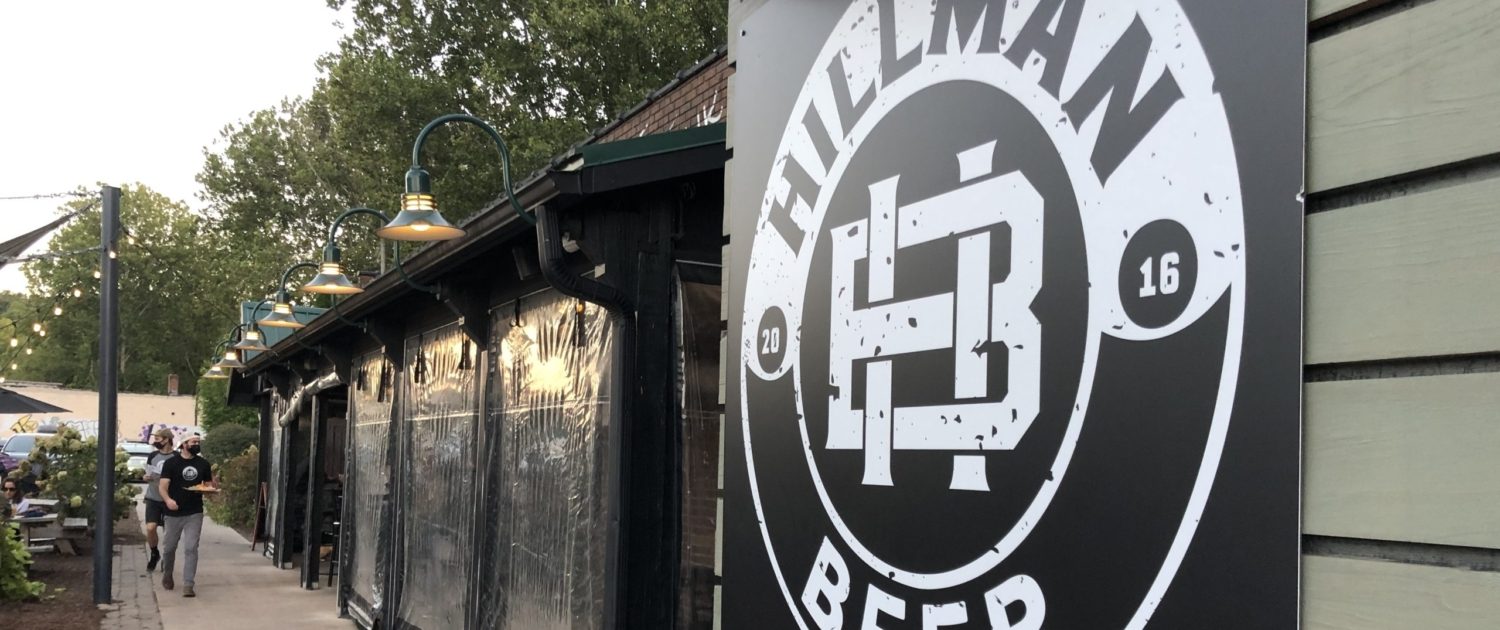Durham, North Carolina-based Fullsteam Brewery is a long-standing partner of ours. Years ago, they were one of the first craft breweries to go all-in on our mission by switching to Riverbend as a primary base malt provider. Utilizing local ingredients falls in line with their Southern Beer Economy ethos and dedication to sourcing within North Carolina as much as possible.
“We were proud to support Riverbend before expansion, back when they had that tiny little malting setup,” says Jon Simpson, Fullsteam’s Head Brewer and self-proclaimed local malt advocate. “The quality has gotten infinitely better in 12 years, and we’re proud of our commitment to them— and to buying local.”
As Fullsteam grew into two locations and distribution across the Carolinas, we’ve been delighted to support their continued choice to purchase Riverbend malt– and not just base malt either. Most recently Fullsteam has made the switch from commodity to Cumberland Corn in their flagship Paycheck Pilsner recipe.
“Sure, craft malt is a little more expensive,” Simpson continues. “But it’s not cheap anymore to ship directly from European malthouses either. The cost-benefit of buying big domestic malt is disintegrating. And especially with the story we’re trying to tell, Riverbend malt just makes sense.”
Fullsteam is telling the next chapter of that story with a custom base malt blended specifically for them, aptly named Plow To Pint Pilsner malt after their company slogan. It’s a blend of Violetta 2-row barley (motivated by Simpson’s love for Chesapeake Pilsner malt made from this varietal) and the brand new Avalon 2-row barley, both grown this year at Bay’s Best Feed in Heathsville, Virginia. Simpson describes this new blend as the best of Violetta’s floral and Avalon’s honey and bready notes. He and his team engaged in every step of this custom malt process– including visiting the malthouse on raking day to do some of the labor themselves.
The first beer to utilize Plow To Pint in the recipe is the second rendition of the “Oops” series, in which Simpson and crew “pick a cool hop and roll with it.” Oops! We [Nelsoned] Again is a crisp Pilsner made with Plow To Pint Pilsner malt, Nelson Sauvin™ hops from Yakima Valley, and Lallemand NovaLager™ yeast. Flavors include NZ Sauv Blanc-like tropical fruit, catty funk, and grapefruit pith. “It’s almost a SMaSH beer with a couple bags of Great Chit for head retention and mouthfeel,” Simpson says.
There’s much more to come from the Oops series, and Simpson has exciting plans for future recipes incorporating Plow To Pint Pilsner malt. Meet Fullsteam’s beers and learn more about their company mission to craft distinctly Southern beer that celebrates the farm and food traditions of the American South at fullsteam.ag.




